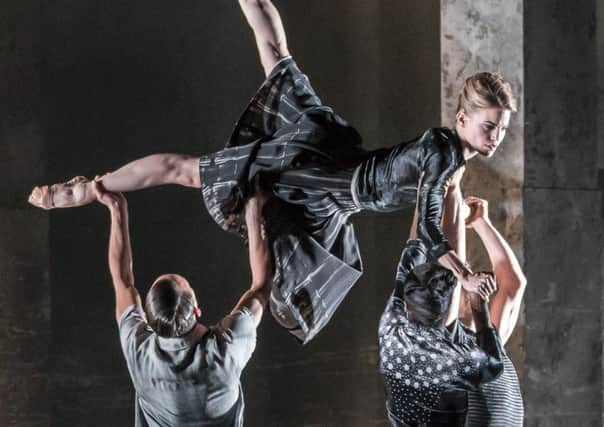Dance review: Rambert: Life is a Dream, Festival Theatre, Edinburgh ***


Frustrating and utterly beguiling in equal measure, Life is a Dream has so many influences – from the worlds of literature, music and theatre – that it’s little wonder we get lost in it all. Brandstrup may have known exactly what he was trying to convey but somewhere between rehearsal room and stage, it’s all become a little too opaque.
Speaking of rehearsal rooms, that’s where the show is set – an atmospheric space populated by imposing columns and windows, a lamp-lit desk, a bare bedframe and an old-fashioned mannequin. Here we find a tired director who has fallen asleep after a busy day rehearsing Pedro Calderón de la Barca’s 17th century play, Life is a Dream.
Advertisement
Hide AdIt’s a clever conceit where anything is possible – performers embody different characters, come in and out of roles and switch behaviours, all at the behest of the director’s sleeping mind.
Keeping track of what’s going on, who everybody is and why we should care is a constant challenge. Rambert is known for delivering largely abstract work, so we don’t need a narrative to fall in love with their movement – only this time, in the company’s first full-length work for almost 40 years – there very clearly is one. We just don’t know what it is.
This is problematic from an emotional point of view, because it’s hard to feel anything meaningful when you’re confused. But, and it’s a huge but, Life is a Dream looks incredible throughout – which very nearly renders the bewilderment irrelevant. The Quay Brothers’ set never stops giving, with the reflective floor throwing up Jean Kalman’s effective lighting design and a series of filmic images taking us to forests and oceans. Holly Waddington’s gorgeous costumes are suitably dream-like, with tie-dyed material shaped into 1650s/1950s hybrids. And Brandstrup’s choreography is a real gift to the uber-talented Rambert dancers, sweeping them up in buoyant lifts then fuelling them with troubled minds and bodies – all wrapped up in the music of Polish composer Witold Lutoslawski, whose ear for drama is perfectly at home in this theatrical dreamland. - KELLY APTER